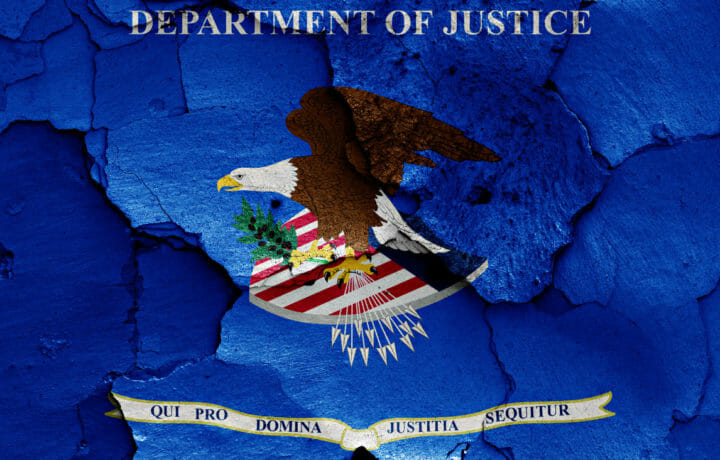There is no debate on whether China has used all the arrows in their quiver to acquire intellectual property or sensitive data to the benefit of China. To counter China’s efforts, the Department of Justice’s (DOJ) “China Initiative” was launched in 2018. The initiative was focused on a number of desired outcomes, some of which included China’s exploitation of academia and the research conducted which fell within the Chinese targeting matrix and was being pipelined back to China.
1000 Talents Program Requires a Response
FBI Director Wray commented in November 2020 how “The Chinese Communist Party’s theft of sensitive information and technology isn’t a rumor or a baseless accusation. It’s very real, and it’s part of a coordinated campaign by the Chinese government, which the China Initiative is helping to disrupt. The FBI opens a new China-related counterintelligence case nearly every 10 hours and we’ll continue our aggressive efforts to counter China’s criminal activity.” He reiterated this metric during congressional hearings surrounding the issuance of the ODNI’s Annual Threat Assessment.
Among the Chinese efforts which percolated right to the top was the Chinese 1000 Talents Program, about which we have discussed in detail over the years – a means by which individuals with specific knowledge desired by China are approached to share that knowledge with China for pay, be it as a consultant or business party in a Chinese entity.
As the DOJ, along with other government agencies began looking into the successes enjoyed by China with their 1000 Talents Program, focus was placed on the undeclared dual funding of research, specifically U.S. government funded research which was ostensibly finding its way to China. While researching those instances where a foreign national, Chinese in this instance, was involved in U.S. government funded activities, investigators found irregularities in visa applications.
A plethora of cases were brought before the courts, once such case was that of visiting a visiting Chinese researcher, Song Chen, whose relationship with China’s PLA had caused DoJ to bring charges in July 2020 alleging visa fraud, not espionage. The DOJ’s counterintelligence entity and prosecutors may have been following the rule of any counterintelligence to discover how the first order of business is to neutralize the threat and then prosecute for that which can be proven. History shows many cases of espionage which were never charged, yet the individual conducting the espionage, the insider breaking trust, was removed from positions of access and the hemorrhage of secrets stopped.
China Initiative xenophobic?
Many critics have claimed DOJ’s efforts to be xenophobic and based on ethnicity, ergo China. While Wray’s statistic is sobering, one must place into context that the number of Chinese within academia who percolate up to the level of being investigated/charged for violation of U.S. laws, to include espionage is infinitesimal, less than .01%. On September 8, 177 Stanford University professors sent to U.S. Attorney Garland a letter highlighting how they believe “the China Initiative has deviated significantly from its claimed mission: it is harming the United States’ research and technology competitiveness and it is fueling biases that, in turn, raise concerns about racial profiling.”
It does warrant review, especially when cases like, Song Chen’s are suddenly dropped by the DOJ after she was arrested, charged, and travel/research disrupted. Was this simply a case of neutralizing the threat and opting not to go to prosecution so as not to have to reveal sources and methods – a win for the counterintelligence effort? Or is this a case of overreaching by the DOJ.
This warrants reviewing two cases involving access to NASA research. In the one case, the DOJ charged a naturalized U.S. citizen of Indian ethnicity who was involved with the Chinese 1000 Talents Program, that individual pleaded guilty to sharing NASA research with China.
Meanwhile, the China Initiative charged a naturalized Canadian citizen at the University of Tennessee, also involved with NASA research with having a relationship with China. In this latter instance, the FBI investigator was chastised by the court for manipulating evidence and a mistrial was declared, the individual, was subsequently acquitted by a federal judge on September 10. It turned out the researcher had been above board the entire time, had declared his ties with China, there was no subterfuge, and the omission of his Chinese relationship in grant documents was caused by a university employee and not the individual charged.
Time to sunset China Initiative
Perhaps DOJ’s enthusiasm in pursuing China-centric cases is sufficient reason to sunset the China Initiative. Is there a need to look for Chinese espionage in the United States? Absolutely. China is stealing the IP of companies and recruiting individuals to provide to them desired information as evidenced by the plethora of cases uncovered in which the individual pleaded guilty.
That said, there is also a need to investigate all cases regardless of ethnicity or nationality of the individual who is purloining the intellectual property or trade secrets. It’s time for a “global initiative” of which China is but one of any number of potential adversaries who have a track record of espionage.




